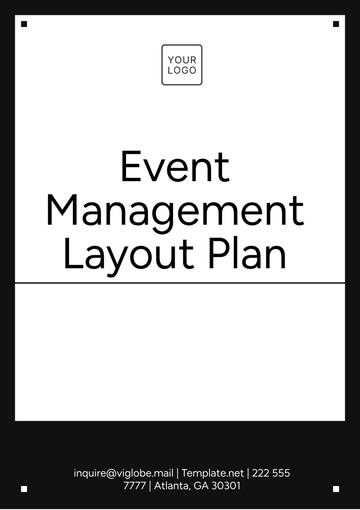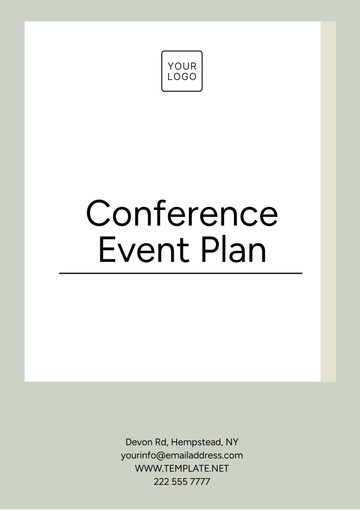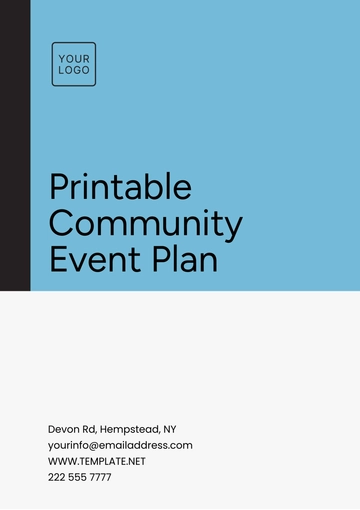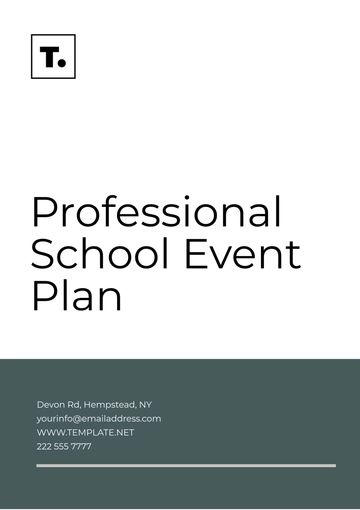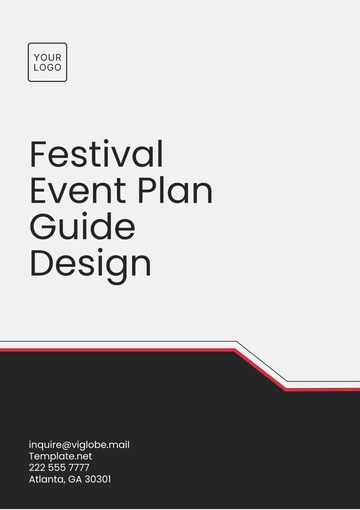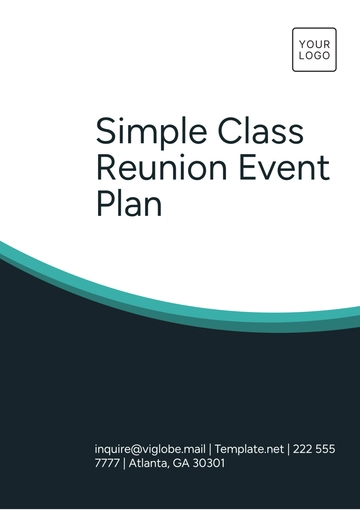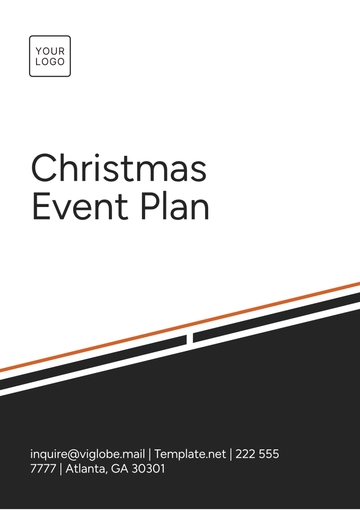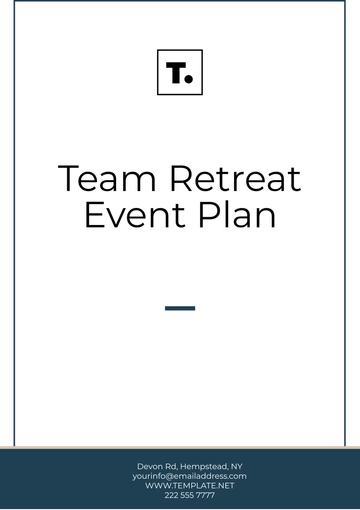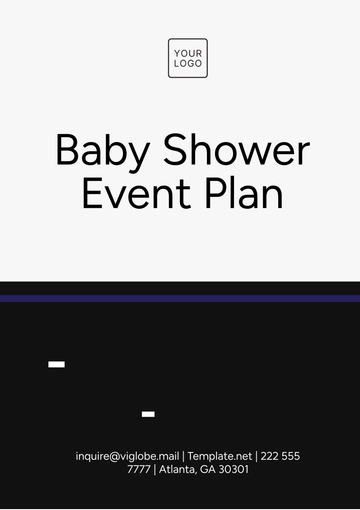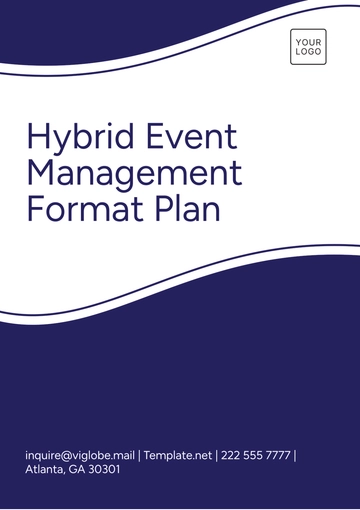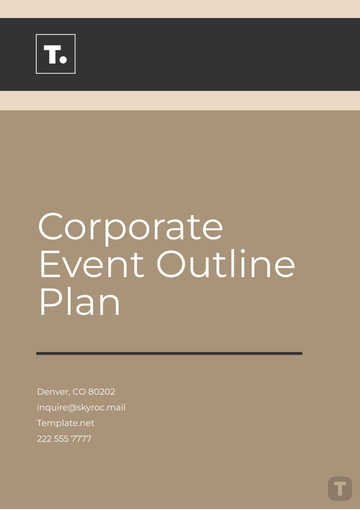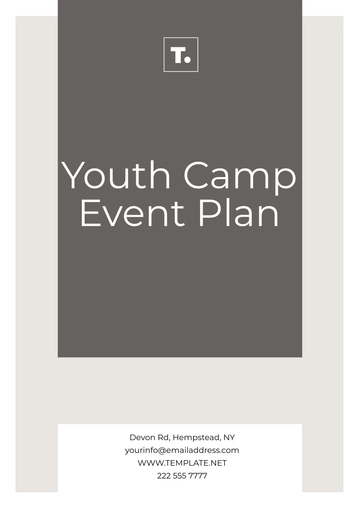Free Concert Event Plan

I. Event Overview
The purpose of this plan is to outline the structure and requirements necessary for the successful planning and execution of the Summer Beats Concert. This document will cover various elements, including logistics, marketing, operations, and post-event evaluation, to ensure a well-managed and memorable event.
II. Event Details
1. Event Name and Description
Event Name: Summer Beats Concert
Description: A vibrant outdoor music festival showcasing popular bands and artists, specifically catering to pop and rock music enthusiasts. The event will foster a lively atmosphere, encouraging community engagement and enjoyment of live music.
2. Date and Venue
Date: Saturday, June 15, 2050
Venue: Central Park Amphitheater
Address: 123 Main Street, Anytown, USA
III. Planning and Logistics
1. Budgeting and Finance
Develop a Detailed Budget Plan:
Outline all anticipated expenses, including venue costs, artist fees, equipment rental, and marketing expenses.Identify Potential Sponsors and Partnerships:
Approach local businesses and brands for sponsorship opportunities to offset costs.Manage Cash Flow and Track Expenses:
Use accounting software to monitor expenditures and ensure the budget is adhered to throughout the planning process.
2. Venue Setup and Requirements
Stage Setup and Equipment Rental:
Ensure proper stage dimensions, backdrop design, and equipment specifications are met for artist performances.Seating Arrangements:
Determine seating layout (general admission, VIP sections) based on expected attendance.Lighting and Sound System Installation:
Hire professionals for installation to ensure high-quality sound and visual experiences.
Equipment List:
Equipment | Quantity | Supplier |
|---|---|---|
Speakers | 10 | Audio Pro Supplies |
Microphones | 15 | MusicGear Rentals |
Mixing Board | 2 | SoundTech Solutions |
Lights | 20 | Bright Events Rentals |
3. Permits and Regulations
Apply for Event and Sound Permits:
Initiate the application process well in advance to avoid last-minute issues.Coordinate with Local Authorities for Safety Compliance:
Ensure adherence to local regulations regarding noise levels, crowd control, and emergency procedures.Ensure Insurance Coverage for the Event:
Obtain necessary insurance policies to cover liability and protect against unforeseen circumstances.
IV. Marketing and Promotion
1. Branding and Design
Create a Cohesive Brand Identity:
Develop a unique logo and color scheme that resonates with the target audience.Design Promotional Materials:
Create posters, flyers, and digital graphics for use across various platforms.
2. Advertising Channels
Social Media Campaigns:
Utilize platforms like Facebook, Instagram, and Twitter for event promotion and audience engagement.Email Marketing:
Send out newsletters to subscribers with event updates and ticket purchasing options.Radio and Print Advertisements:
Partner with local radio stations and newspapers for ad placements to reach broader audiences.
V. Operations and Execution
1. Staffing and Volunteers
Recruit and Train Staff and Volunteers:
Enlist individuals for various roles, including ticket sales, crowd management, and information booths.Develop Clear Roles and Responsibilities:
Create an organizational chart to clarify each team member's duties before the event.
2. Security and Emergency Services
Hire Experienced Security Personnel:
Ensure trained security staff are present to maintain safety and order.Establish Emergency Response Protocols:
Develop a plan for medical emergencies, including first-aid stations and evacuation routes.Coordinate with Local Health Services:
Work with local health departments to ensure medical support is available.
VI. Post-Event Evaluation
1. Feedback Collection
Distribute Feedback Forms:
Provide forms for attendees to share their experiences and suggestions for improvement.Conduct Exit Interviews with Attendees:
Engage with attendees to gather qualitative insights on their experience.
2. Performance Review
Analyze Financial Performance:
Compare actual expenses and revenues against the budget to determine profitability.Evaluate Marketing Strategies Effectiveness:
Assess which advertising channels generated the most engagement and ticket sales.
3. Reporting
Compile an Event Summary Report:
Create a comprehensive report detailing the event's success and areas for improvement.Share Learnings and Recommendations for Future Events:
Distribute findings to stakeholders and team members to enhance future planning efforts.
- 100% Customizable, free editor
- Access 1 Million+ Templates, photo’s & graphics
- Download or share as a template
- Click and replace photos, graphics, text, backgrounds
- Resize, crop, AI write & more
- Access advanced editor
Introducing the Concert Event Plan Template from Template.net! This fully editable and customizable template streamlines your event planning process. Effortlessly tailor every aspect of your concert with our user-friendly Ai Editor Tool. Create a comprehensive plan that ensures a successful event, making it easier to organize logistics, manage timelines, and coordinate with your team.
You may also like
- Finance Plan
- Construction Plan
- Sales Plan
- Development Plan
- Career Plan
- Budget Plan
- HR Plan
- Education Plan
- Transition Plan
- Work Plan
- Training Plan
- Communication Plan
- Operation Plan
- Health And Safety Plan
- Strategy Plan
- Professional Development Plan
- Advertising Plan
- Risk Management Plan
- Restaurant Plan
- School Plan
- Nursing Home Patient Care Plan
- Nursing Care Plan
- Plan Event
- Startup Plan
- Social Media Plan
- Staffing Plan
- Annual Plan
- Content Plan
- Payment Plan
- Implementation Plan
- Hotel Plan
- Workout Plan
- Accounting Plan
- Campaign Plan
- Essay Plan
- 30 60 90 Day Plan
- Research Plan
- Recruitment Plan
- 90 Day Plan
- Quarterly Plan
- Emergency Plan
- 5 Year Plan
- Gym Plan
- Personal Plan
- IT and Software Plan
- Treatment Plan
- Real Estate Plan
- Law Firm Plan
- Healthcare Plan
- Improvement Plan
- Media Plan
- 5 Year Business Plan
- Learning Plan
- Marketing Campaign Plan
- Travel Agency Plan
- Cleaning Services Plan
- Interior Design Plan
- Performance Plan
- PR Plan
- Birth Plan
- Life Plan
- SEO Plan
- Disaster Recovery Plan
- Continuity Plan
- Launch Plan
- Legal Plan
- Behavior Plan
- Performance Improvement Plan
- Salon Plan
- Security Plan
- Security Management Plan
- Employee Development Plan
- Quality Plan
- Service Improvement Plan
- Growth Plan
- Incident Response Plan
- Basketball Plan
- Emergency Action Plan
- Product Launch Plan
- Spa Plan
- Employee Training Plan
- Data Analysis Plan
- Employee Action Plan
- Territory Plan
- Audit Plan
- Classroom Plan
- Activity Plan
- Parenting Plan
- Care Plan
- Project Execution Plan
- Exercise Plan
- Internship Plan
- Software Development Plan
- Continuous Improvement Plan
- Leave Plan
- 90 Day Sales Plan
- Advertising Agency Plan
- Employee Transition Plan
- Smart Action Plan
- Workplace Safety Plan
- Behavior Change Plan
- Contingency Plan
- Continuity of Operations Plan
- Health Plan
- Quality Control Plan
- Self Plan
- Sports Development Plan
- Change Management Plan
- Ecommerce Plan
- Personal Financial Plan
- Process Improvement Plan
- 30-60-90 Day Sales Plan
- Crisis Management Plan
- Engagement Plan
- Execution Plan
- Pandemic Plan
- Quality Assurance Plan
- Service Continuity Plan
- Agile Project Plan
- Fundraising Plan
- Job Transition Plan
- Asset Maintenance Plan
- Maintenance Plan
- Software Test Plan
- Staff Training and Development Plan
- 3 Year Plan
- Brand Activation Plan
- Release Plan
- Resource Plan
- Risk Mitigation Plan
- Teacher Plan
- 30 60 90 Day Plan for New Manager
- Food Safety Plan
- Food Truck Plan
- Hiring Plan
- Quality Management Plan
- Wellness Plan
- Behavior Intervention Plan
- Bonus Plan
- Investment Plan
- Maternity Leave Plan
- Pandemic Response Plan
- Succession Planning
- Coaching Plan
- Configuration Management Plan
- Remote Work Plan
- Self Care Plan
- Teaching Plan
- 100-Day Plan
- HACCP Plan
- Student Plan
- Sustainability Plan
- 30 60 90 Day Plan for Interview
- Access Plan
- Site Specific Safety Plan




